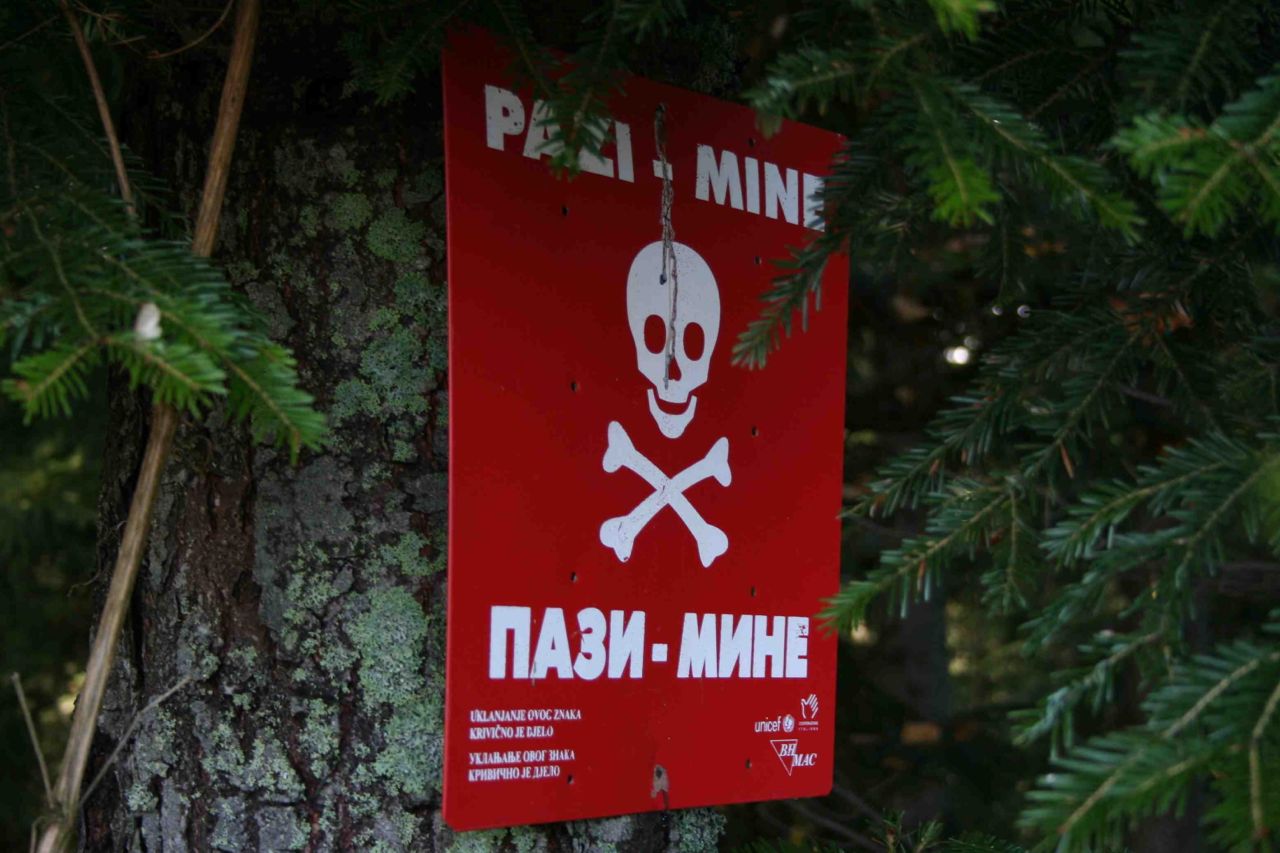The Kent Interdisciplinary Centre for Spatial Studies (KISS) hosted a joint event with the Kent Centre for Critical International Law (CeCIL) last month that featured Dr David Henig delivering a captivating talk entitled ‘Living on the Frontline: Indeterminacy, Value and Military Waste in Postwar Bosnia-Herzegovina.’
David gave an elaborate account of his ethnographic fieldwork in Bosnia-Herzegovina that centred on unexploded munitions from the 1990s Balkans Conflicts and the new forms of social life experienced by the people whose environments are shaped by the continued presence of these material legacies of war. In doing so, he explained two analytical registers that guided his ethnographic approach that centred on the concept of ‘indeterminacy.’ On the one hand, there is indeterminacy in the form of unexploded munitions that present a constant risk of death or catastrophic bodily injury. On the other hand, there is indeterminacy in the form of economic precariousness experienced by much of the population in the post-socialist and post-conflict former Yugoslavia. In connecting these two indeterminacies, David explained how the indeterminacy of economic precariousness has led many to seek sustenance through informal practices, including the collection of mushrooms and timber, that incentivises them to venture into restricted areas that expose them to the risk of unexploded munitions.
He showed how these two indeterminacies are linked to broader geopolitical and geoeconomic contexts. For at one level, due to the influence of the US, much of the post-conflict reconstruction process was privatised in the name of opening the former Yugoslavia to market friendly, neoliberal reforms undertaken in the name of ‘development.’ This operated in conjunction with the Dayton Accords where the incredibly complex power-sharing scheme created a vast amount of indeterminacy as to what the functions and responsibilities of state actors actually were in the post-conflict era. As a result, major political parties divisively representing the various ethnic groups entrenched themselves, and any individual hoping to attain a financially secure existence had to affirm the particular vision of ethnicity promoted by one of the respective parties. Moreover, the unexploded munitions themselves are part of this broader scheme – by the time that the privatised clean-up process was ready to occur, the private firms specialised enough for this work had already found more lucrative opportunities resulting from the US-led wars in Iraq and Afghanistan.
Against this backdrop, David gave a detailed explanation of how people on the ground exercised agency in the face of this dual-indeterminacy. His account illustrated how anthropology’s bottom-up understanding of the world presents great potential for international law scholars. After all, while international law has historically fixated on the distinction between ‘war’ and ‘peace’ as two separate statuses where different obligations attach and different rules are applicable, David’s work shows just how complicated this seemingly straight-forward binary is at the level of everyday life. While such a deliberately ethnographic approach to international law is in its infancy and presents a whole new array of methodological challenges, such challenges are increasingly worth exploring.
Report by CeCIL’s Eric Loefflad.

